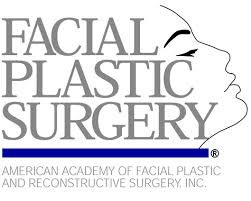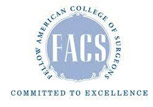Sep 01

Board-Certified Plastic Surgeon vs Cosmetic Surgeon - what's the difference?
Board-Certified Plastic Surgeon vs Cosmetic Surgeon - what’s the difference?
Choosing the right surgeon matters. The terms "board certified plastic surgeon" and "cosmetic surgeon" are often used interchangeably, but they are not the same. Below is a clear, patient-friendly explanation you can use as a blog post or short guide.
Quick Facts
-
Plastic surgeons perform both cosmetic surgery and reconstructive surgery
-
Most plastic surgeons perform cosmetic surgery, although some only perform reconstructive surgery
-
Most plastic surgeons are cosmetic surgeons but most cosmetic surgeons are not plastic surgeons
-
Cosmetic surgery is not a recognized specialty by the ABMS (American Board of Medical Specialties)
-
Cosmetic surgeons may be dermatologists, dentists (oral surgeons), or obstetricians
-
There are generally three recognized surgical specialties that are considered to provide substantial training in plastic and reconstructive surgery:
-
Plastic surgery
-
Otolaryngology (facial plastic surgery)
-
Ophthalmology (oculoplastic surgery)
Quick summary
Board certified plastic surgeon: a board-certified plastic surgeon has completed an accredited plastic surgery residency, passed the board exam from the American Board of Plastic Surgery, and has met and maintained continuing education and professional standards.
Board certified facial plastic surgeon: a board-certified facial plastic surgeon has completed an accredited surgery residency in otolaryngology-head and neck surgery as well as a fellowship in facial plastic surgery, and passed the board exams in Otolaryngology and Facial Plastic surgery, and has met and maintained continuing education and professional standards.
Board certified oculoplastic surgeon: a board-certified oculoplastic surgeon has completed an accredited surgery residency, passed the board exam from the American Board of Ophthalmology, and has met and maintained continuing education and professional standards.
Double board-certified: some surgeons hold board certification in two specialties, often adding depth of training and experience. For example, a surgeon might be board certified in plastic surgery and in another surgical specialty.
Dr. Naficy is double board certified in both facial plastic surgery, and otolaryngology & head and neck surgery.
Dr. Hurvitz is double board certified in both plastic surgery, and otolaryngology & head and neck surgery.
Cosmetic surgeon: this is a descriptive title rather than one fixed credential. A cosmetic surgeon may not have actually completed a surgical residency. For example one can become ‘board certified in cosmetic surgery’ by only having had training as a dentist (oral surgeon), a dermatologist, or as an obstetrician/gynecologist.
Why certification matters for safety and outcomes
-
Certification shows formal training and successful completion of standardized exams. That often correlates with competence in complex anatomy, complication management, and access to hospital privileges for safe care.
-
Plastic surgeons with recognized ABMS board certification are more likely to have the training needed for both aesthetic technique and for handling complications if they occur.
-
Titles like “cosmetic surgeon” alone do not guarantee a specific level of accredited training.
Practical advice for patients
Ask every surgeon these questions before booking a procedure:
-
Which board or boards are you certified by? Can you spell the exact board name?
-
Where and in what specialty did you complete your residency and any fellowships? How many years of training were they?
-
Do you have hospital privileges to perform this procedure at an accredited hospital? If not, where will the surgery take place?
-
Can I see before and after photos and patient references for this exact procedure?
-
What are your complication and revision rates for this procedure?
-
Who will manage my care if there is a complication after surgery?
Red flags to watch for
-
A practice that avoids showing credentials or becomes vague when you ask about board certification.
-
Cosmetic surgeons who have not done a surgery residency (for example dermatologists, dentists, etc).
-
“Board certified” phrased in a misleading way without naming the certifying board.
-
Pressured sales tactics, limited information about follow up care, or procedures always offered outside accredited facilities.
Bottom line
If safety, predictable results, and appropriate complication care are important to you, prioritize a surgeon whose board certification is clear and recognized. Double board certification can add valuable experience for complex cases. The title “cosmetic surgeon” describes what someone does but it definitely does not guarantee how well they were trained. Do your homework, ask specific credential questions, and confirm depth of training and board certification in an ABMS recognized surgical specialty (plastic surgery, otolaryngology, or ophthalmology) before you decide.





